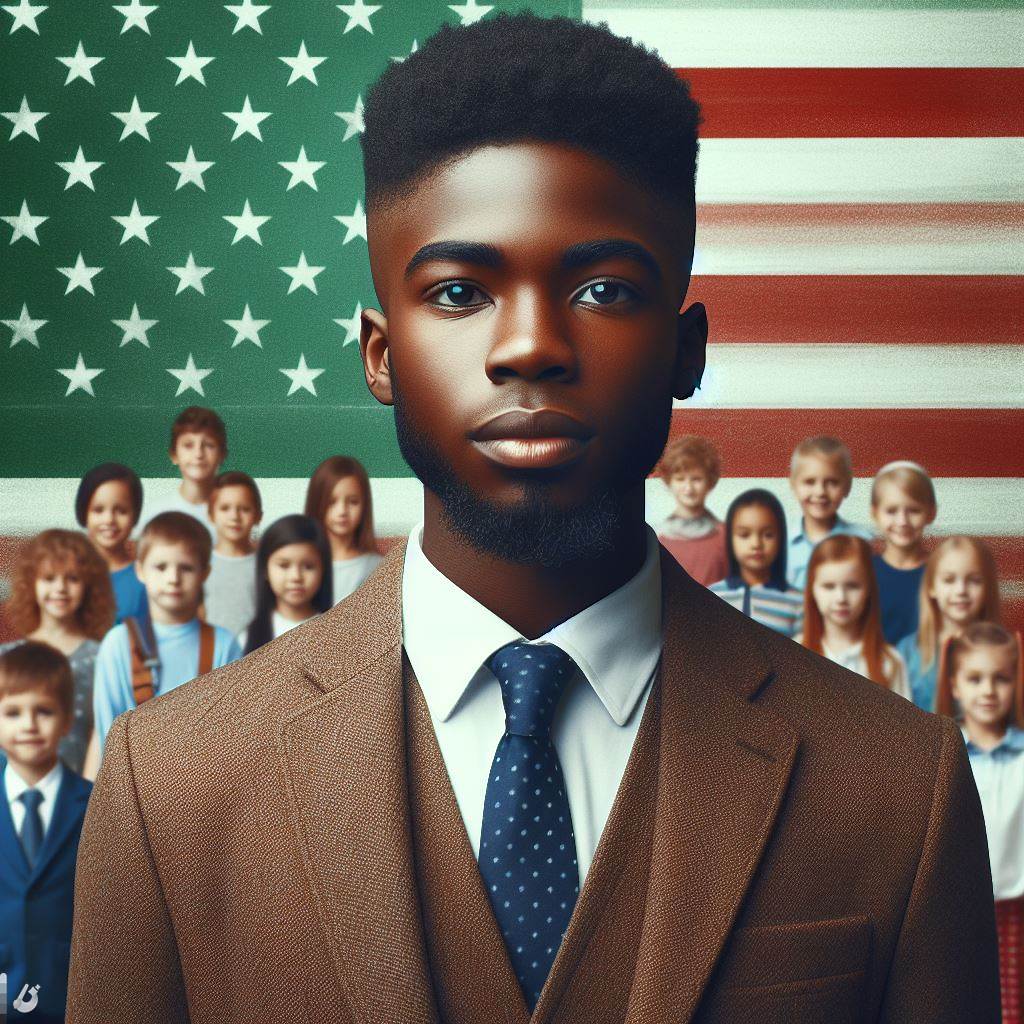Introduction
Diversity in school counseling is crucial for bridging cultural gaps and promoting understanding and inclusivity.
Diversity in school counseling plays a crucial role in bridging cultural gaps by promoting understanding and inclusivity among students, families, and educators.
In the ever-evolving landscape of education, school counselors serve as crucial guides, offering support and guidance to students from diverse cultural backgrounds.
The inclusion of diverse perspectives in counseling practices ensures that students receive comprehensive and culturally competent assistance.
In a nutshell, the importance of diversity in school counseling cannot be overstated.
It is not merely a checkbox on an inclusivity list; it is a transformative force that shapes the very foundation of educational support.
Embracing diversity, counselors drive change, creating an inclusive, compassionate educational environment.
The ongoing journey to bridge cultural gaps allows counselors to actively impact the diverse student population, making a meaningful difference.
Understanding the Role of School Counselors
Definition and responsibilities of a school counselor
- School counselors play a crucial role in supporting students’ academic, career, and personal/social development.
- They provide counseling services, guidance, and interventions to help students overcome challenges and achieve success.
- School counselors collaborate with teachers, parents, and administrators to create a safe and inclusive learning environment.
- They advocate for students’ well-being and act as a resource for academic planning and college/career readiness.
Importance of cultural competence in counseling practices
Cultural competence refers to the ability to understand, respect, and effectively respond to the diverse needs and backgrounds of students.
School counselors must recognize and value cultural differences to provide equitable and inclusive support.
- Culturally competent counselors consider the intersectionality of identities, such as race, ethnicity, religion, and socioeconomic status.
- They aim to eliminate biases and stereotypes that may hamper students’ growth and hinder their educational journey.
- By embracing cultural competence, counselors promote social justice and encourage a welcoming and accepting school community.
- Cultural competence allows counselors to engage in responsive counseling practices that honor students’ cultural backgrounds and beliefs.
- It enhances their ability to develop effective interventions that address individual and systemic barriers to academic success.
- Cultural competence fosters trust between counselors and students, creating a safe space where students feel understood and supported.
- It allows counselors to tailor their counseling strategies and approaches to meet the unique needs and preferences of each student.
- Culturally competent counselors actively seek ongoing professional development to continually improve their practice.
- They engage in self-reflection and self-awareness to identify and challenge their own biases and beliefs.
- Building cultural competence requires counselors to actively listen, learn, and embrace cultural humility throughout their careers.
- By promoting cultural competence, school counselors play a crucial role in bridging cultural gaps and promoting equality.
- They create an environment where students from all backgrounds can thrive academically, emotionally, and socially.
- Through their advocacy, support, and guidance, school counselors help students navigate their educational journey successfully.
Read: Networking and Professional Associations for US Librarians
Challenges Faced in School Counseling
Lack of diversity among school counselors
The lack of diversity among school counselors creates a barrier to effectively understand and address students’ needs.
Homogenous counseling staff limits the perspective and cultural competence needed to support students from diverse backgrounds.
Without a diverse counseling workforce, students may feel misunderstood and not fully represented.
Addressing the diversity gap in school counseling is a crucial step toward providing equitable and culturally sensitive support.
Recruiting and hiring a more diverse pool of school counselors is essential to bridge cultural gaps effectively.
Misunderstandings due to cultural differences
Cultural differences can lead to misunderstandings between school counselors and students.
Language barriers, values, customs, and norms can all contribute to miscommunication and misinterpretation.
Stereotypes and biases may further complicate these misunderstandings, affecting the counseling relationship.
Building cultural competence among school counselors is key to addressing and overcoming these misunderstandings.
Transform Your Career Today
Unlock a personalized career strategy that drives real results. Get tailored advice and a roadmap designed just for you.
Start NowIncreased awareness and sensitivity to cultural nuances can foster more effective counseling sessions.
Cultural barriers affecting communication and counseling effectiveness
- Cultural barriers, such as different communication styles and non-verbal cues, can hinder effective counseling.
- Some students may come from cultures that emphasize indirect communication, while others are more direct.
- Understanding these cultural nuances is crucial to ensure effective communication and foster trust in counseling relationships.
- Being aware of power dynamics influenced by cultural contexts is also essential for counselors.
- Empowering students to voice their concerns and needs can help overcome cultural barriers and improve counseling effectiveness.
By acknowledging and addressing these challenges, school counselors can bridge cultural gaps and provide inclusive support.
Efforts in diversifying the school counseling workforce, fostering cultural competence, and understanding cultural barriers are essential steps.
Creating a safe and culturally sensitive space for students is the responsibility of school counselors.
Through awareness, knowledge, and continuous learning, school counselors can ensure that diversity is embraced and students’ needs are met.
By actively challenging biases and stereotypes, school counselors can create an environment that celebrates the richness of cultural diversity.
Effective school counseling requires open-mindedness, cultural humility, and a commitment to ongoing professional development.
By navigating the challenges and embracing diversity, school counselors can truly bridge cultural gaps and foster student success.
Read: Digital Libraries and Databases: US Librarians at the Forefront
Benefits of Diversity in School Counseling
Enhanced understanding of students’ cultural backgrounds
Diversity in school counseling contributes to a better understanding of students’ cultural backgrounds.
Counselors can develop insights into students’ unique experiences and perspectives, facilitating effective support.
This understanding allows counselors to tailor their approaches and interventions to the specific needs of each student.
Building trust, empathy, and rapport with diverse students
Through diversity, school counselors can build trust, empathy, and rapport with students from different backgrounds.
Students feel more comfortable sharing their concerns and seeking guidance when they perceive cultural understanding.
The counselor’s ability to relate to their experiences helps establish a positive connection, promoting student success.
Providing culturally responsive interventions and support
Through diversity, school counselors can build trust, empathy, and rapport with students from different backgrounds.
Students feel more comfortable sharing their concerns and seeking guidance when they perceive cultural understanding.
The counselor’s ability to relate to their experiences helps establish a positive connection, promoting student success.
Addressing microaggressions and discriminatory practices
- A diverse counseling staff is crucial for addressing microaggressions and discriminatory practices within schools.
- Counselors can identify and confront instances of bias or discrimination towards students from various backgrounds.
- By advocating for fairness and inclusivity, counselors contribute to a safer and more supportive school environment.
In fact, diversity in school counseling brings numerous benefits to both students and the educational community.
Showcase Your Business Today
Reach thousands of readers actively exploring professional services. Publish your business profile and grow your audience now.
Publish NowThe enhanced understanding of students’ cultural backgrounds enables tailored support and interventions.
Building trust, empathy, and rapport further promotes students’ well-being and success.
Additionally, culturally responsive interventions and addressing discriminatory practices are vital for a safe and inclusive school environment.
Therefore, fostering diversity within school counseling is essential for bridging cultural gaps and promoting educational equity.
Read: Advocacy and the Librarian: Pushing Boundaries in the US

Strategies to Promote Diversity in School Counseling
In order to bridge cultural gaps in school counseling, it is important to implement strategies that promote diversity and foster an inclusive environment.
These strategies include:
Recruitment and Hiring Practices to Increase Diversity
- Implementing diversity goals and targets in the hiring process.
- Ensuring job advertisements and postings reach a diverse pool of candidates.
- Providing training to interviewers on unconscious biases to enhance fair evaluation.
- Collaborating with diverse community organizations to attract a wide range of applicants.
Cultural Competence Training and Professional Development for Counselors
Mandating cultural competence training for all school counselors to enhance their ability to work with diverse populations.
Offering ongoing professional development opportunities on multicultural counseling and diversity issues.
Providing resources, workshops, and seminars that increase counselors’ awareness of cultural differences.
Promoting participation in diversity conferences and seminars to broaden counselors’ perspectives.
Supporting counselors in obtaining additional certifications in multicultural counseling.
Establishing a Diverse and Inclusive Counseling Environment
- Creating an inclusive counseling space that reflects the diversity of the student population.
- Displaying materials, resources, and visuals representing various cultures and backgrounds.
- Offering culturally responsive counseling services that respect and value students’ individual identities.
- Providing interpreters or translated resources to ensure accessibility for non-English-speaking students and families.
- Developing a curriculum that incorporates cultural competence and diversity education.
- Forming diverse counseling teams that can better understand and support students from different backgrounds.
By implementing these strategies, schools can create a more inclusive counseling environment that bridges cultural gaps and ensures that all students feel supported and valued.
Successful Examples of Diversity in School Counseling
Case studies highlighting positive outcomes from diverse counseling programs
Culturally responsive counseling in a diverse school boosted student engagement and academic performance, as per a recent study.
In another case study, a school counselor successfully advocated for resources that supported the mental health needs of diverse students.
A diverse counseling program in a high school created a safe and inclusive environment where students felt comfortable seeking help and support.
Sharing success stories of counselors bridging cultural gaps
- A counselor’s success: guiding an immigrant student and family through college applications, leading to acceptance at his dream university.
- A counselor orchestrated a diverse school fair, uniting students to celebrate their cultures and foster understanding.
- A counselor initiated a mentorship program, pairing students of diverse backgrounds to foster cross-cultural friendships and mutual learning.
These examples demonstrate the importance and effectiveness of diversity in school counseling:
Diverse counseling programs create an inclusive space for students to address their unique challenges and receive appropriate support.
Counseling initiatives that embrace cultural differences can improve students’ mental health and overall well-being.
Successful experiences of counselors bridging cultural gaps highlight the positive impact of culturally competent counseling.
By celebrating and implementing diversity in school counseling, we can foster a supportive environment where all students thrive.
Read: Librarians’ Role in US Community Development and Outreach
Conclusion
In the realm of school counseling, diversity isn’t just a buzzword—it’s the key to unlocking students’ potential.
Embracing and promoting diversity goes beyond rhetoric; it’s a powerful catalyst for positive changes.
Diversity enriches counseling dynamics, ensuring that every student’s unique background is acknowledged and addressed.
Culturally responsive counseling enhances student engagement and academic performance, fostering an inclusive learning environment.
Strategic initiatives can enhance the diversity of school counseling teams. Active recruitment efforts targeting individuals from various backgrounds are crucial.
Additionally, continuous professional development is essential, achieved through ongoing cultural competency training for counselors.
Diversity isn’t just a checkbox; it’s a lifeline for students. Embracing diversity fuels success and well-being, creating resilient individuals prepared for a diverse world.
In closing, let’s champion diversity in school counseling—it’s not just a strategy; it’s a commitment to students’ holistic growth.
[E-Books for Sale]
The Big Book of 500 High-Paying Jobs in America: Unlock Your Earning Potential
$19.99 • 500 High-Paying Jobs • 330 pages
Explore 500 high-paying jobs in America and learn how to boost your career, earn more, and achieve success!
See All 500 High-Paying Jobs of this E-Book
1001 Professions Without a Degree: High-Paying American Jobs You Can Start Now
$19.99 • 1001 Professions Without a Degree • 174 pages
Discover 1001 high-paying jobs without a degree! Unlock career tips, skills, and success strategies for just $19.99!




